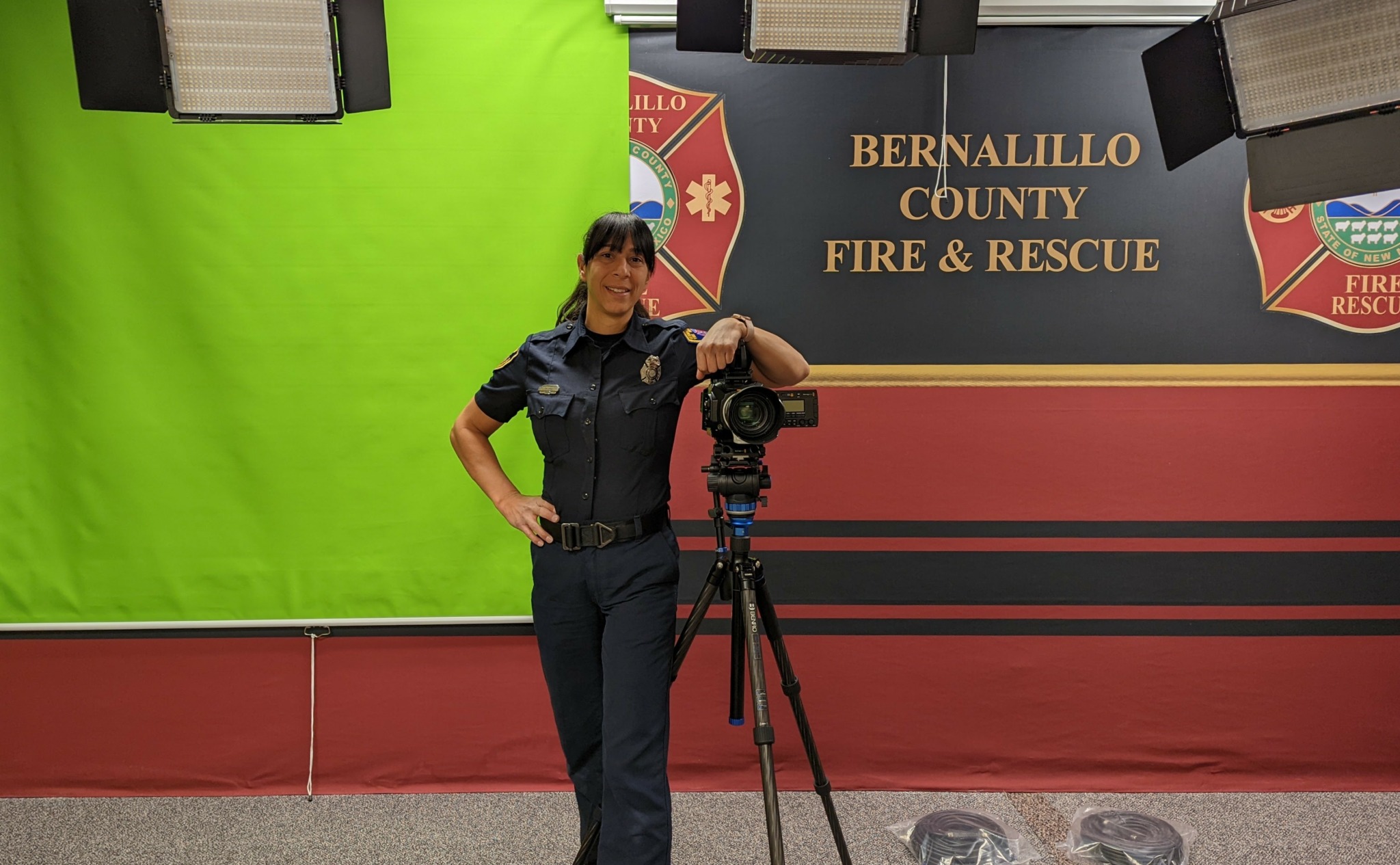We recently connected with Janessa Ruiz and have shared our conversation below.
Janessa, thanks for taking the time to share your stories with us today Risk taking is something we’re really interested in and we’d love to hear the story of a risk you’ve taken.
The world often tells us that coloring inside the lines is the best way to make a pretty picture, but my most inspiring mentors and teachers taught me that exploring outside of them is what makes art. It’s a lesson that would guide me from career to career, showing me how to combine my experiences into a force for good. I was never afraid to be incompatible with the world around me, but I never knew that staying true to that different constitution would force me to forge a completely unconventional path of my own.
As a child, I wanted to become a veterinarian, then later in high school, an educator. I wasn’t an A+ student; in fact, I was that annoying kid that fell asleep in class and never did homework, yet aced all the tests. I was declared gifted, but lazy. A bit of self-reflection made me realize that the only classes I ever cared about were with the teachers who could navigate beyond the curriculum and challenge me with exploring alternative perspectives. They stimulated conversations with personal insights and experiences, laying the groundwork for me to explore beyond the confines to the status quo. Conversations that awoke a desire to be a conduit for others just the same.
“I love your faces, and I will see you tomorrow!” There was something connective about this phrase that was uttered at the end of every daily vlog post by YouTube host, Philip DeFranco. Since 2007, his show, The Philip DeFranco Show, has focused on news and pop culture. This was groundbreaking for the YouTube format, as it was such a deviation from the comedy and daily vlog style videos that populated the website’s offerings. I never aspired to get into film and production before that. However, to be able to reach an audience across the world with a self-produced, low-budget, and unconventional show, it spoke to me.
As the YouTube platform evolved, it became a staple for small voices to become influential in ways that traditional media would never allow. I was fascinated by this change in paradigm. I wanted in on this as this seemed to be the exact avenue where I could provide insight and stimulate conversation. I just didn’t know where to start and felt that if I did, I was lacking so many necessary skills to make it happen. Without an audience, equipment, production skills, ability to edit, or solid format concepts, I would be nothing more than a random girl with a hope and a dream talking into a camera.
Years had now passed and after long abandoning my desires of small screen stardom, I was a seasoned Blackjack dealer in Black Hawk, Colorado. This was an obvious detour from my youthful ambitions of yesteryear. My lack of scholastic follow-through had finally caught up with me and resulted in a spectacular failed attempt at trying to color inside those proverbial lines. The casino industry paid well, which made it easy to forget about my adolescent failures, but it didn’t remove my zest for wanting to edify. This led me to moving into the casino’s table games training division, helping to satisfy that itch ever so slightly.
Back then, Myspace had just fizzled out and Facebook became the new place to get your social media fix. Communities and groups of various backgrounds were sprouting up every day, some for education, shared hobbies, and satire. I belonged to one of these groups, titled “Tipping Your Casino Dealer”, a place for those within the industry to post memes, shared experiences, and vent about some of the hardships of dealing with players. It was a jovial community that was clearly filling a void for those who were looking to connect with others in the industry. I was a big fan of the curated images and insightful posts made by the admin of the page, and with over 10,000 followers (which was a respectable amount at that time), it was, in every way, a tight-knit community.
One day the admin made a very sad post saying she was leaving the industry. She recounted how rewarding it was to watch the page grow, and at the end, she extended an invitation to apply for her position. She wanted the page to be run by someone who was still in the industry and continued to play an active role within the community.
A rush of thoughts came over me.
“That could be me…” I thought. “Why couldn’t it be me? I have ideas that could bring the conversation to the next level, and I now could have that audience to bring it all to fruition!”
Writing the application was the easy part. Interviewing was going to be even less of a challenge; I always presented well. But beyond a few good ideas, I had nothing else going for me. I never ran a social media page before, I had no formal education, or even a clue as to what I would do first even if I was selected. I was setting myself up to being that proverbial dog after it finally caught the car it was chasing.
With much doubt in my mind and shaky hands, I clicked the submit button for my application. This non-paid position to anyone else would have been nothing but a forum and some bragging rights. But to me, the results bore substance. Though I was afraid of what the rejection entailed, I was eager for a reply. After a week of radio silence, I was informed that I would be one of two who would interview for the spot.
When the dust settled, my moxie had won out. I, Janessa, was selected to lead this page, its followers, and its content going forward. I had no idea that taking that leap would be one of the most pivotal moments of my life.
I knew that with the goodwill afforded to me by a generous introduction from the vacating admin, I needed to get to work immediately. With a format-first focus, I was inspired by my YouTuber, Mr. DeFranco, to build out a news-based web series. As much as I wanted to speak on every and anything about the world around us. I was aware of the fundamental writing principle of “write what you know,” it made sense to stay focused on a topic I had navigated professionally for over a decade.
With the topic and medium decided on, the next step – the largest step – was to learn how to write, produce, film, and edit the content. The reality was dawning on my that I was in way over my head and there was no way I was going to be able to do this alone. I turned to my wife who had a degree in business and newly kindled friendship with a brilliant casino co-worker who was “looking for something fun to do”. Even with this rag-tag team, we were utterly inept to handle the task in front of us.
With time preventing us from learning how to do it “the right way” by going back to college. We went to the only open source of information we of: YouTube. We devoured hundreds of hours of tutorials and product reviews, learning everything from rudimentary lighting to audio mixing to video editing. We learned by doing, piecing together our first makeshift studio with less than $2,000 – money we didn’t really have to throw at a project we were completely ill-equipped to start. The learning curve was intense, making for very long nights and reshoots, but we were motivated by the challenge and proud of our budding production.
Somehow, we were showing signs of success in our own right. Our audience gravitated toward our content immediately and were having many stimulating conversations in our comments sections. It wasn’t easy, not by a long shot. But the hard work and the long hours were starting to pay off. To be honest, if the story had ended there, I would be just as happy and proud that I was brave enough to take that initial plunge.
About six months into this experiment, I received one of my first lessons in networking. A fellow local Blackjack dealer, who was a fan of our series, reached out and came to us to ask us for some production advice. The difference here was that we could be more than the limiting YouTube videos we garnered our production lessons from. He proudly provided details of his small role on a local sports show and wanted our take on how his self-produced segment looked. It was a reminder of where we started not so long ago. While providing him with advice may have been sufficient, we took this as an opportunity to diversify our capabilities and offered to produce his content for free.
These good intentions effectively doubled our production workload. We were also faced with learning how to create for a new audience and interface with talent outside of our inner circle. A talent who was amazing to work with but would often be resistant to take direction from the production side. Nonetheless, a resonance was found, and we pulled together to create solid content. The network took notice of the changes almost immediately. After six months, we were offered the opportunity to put a pilot together for a potential series order.
That same initial rush came over me and I got into action. I immediately began breaking down all the needs for a potential 24-minute series. We worked out that we needed three eight-minute segments; First, capitalize on our original winning formula and keep the talent’s breakdown of national and local sports. Second, an on-site interview with local and professional athletes. We wanted to take advantage of outside participants helping to bring in traffic to the show. Third, a final segment where the talent would bring on a guest to prognosticate upcoming sporting events. This was to inspire interaction from the audience to agree or disagree with our host on our socials. With format in hand a concise treatment put together and presented to the network.
They loved it, and it was immediately picked up for a one-season run. I expanded the crew, brought on more talent, and worked out a production schedule that now incorporated on-set and on-location filming. It was intense to say the least; this turned from me just wanting to be a YouTuber to employing professionals to make a weekly television series.
In the midst of this endeavor, I had a side-project. I loved the casino industry, but it lacked substance. I had realized the only difference I was making in anyone’s life was the size of my player’s wallets. Coming off the success of my film and production efforts, and at the age of 35, I enrolled back into college to obtain my EMT-B certification so that I could begin applying to my local fire departments. To some, this came out of nowhere and seemed unnecessary after all I had going on. But I knew that I had it in me to be part of something bigger than myself.
Forty hours a week at the casino, over sixty-five hours a week producing the television show, and taking twenty-one credit hours of college made it so the amount of sleep I was getting a week was in the literal single digits. I had never experienced anything as daunting in my life or ever since. My resolve was tested, and I began to question my methodologies. But surprising everyone including myself, I made it through the program.
The next phase was to begin applying to the departments in my area. I had my EMT-B certification, but no true understanding of what else the process entailed. I quickly learned that there was a written test, physical challenge, and a panel board interview. As mentioned before, I test well. I had also been an athlete most of my life – pole-vaulting being my claim to fame throughout my teens and twenties, then getting into martial arts and boxing throughout my later years. The firefighter combat challenges that were a barrier for 95% of the female applicants, I was able to make short work of. The top-brass filled panel board was intimidating, to say the least, but I brought the moxie and relied heavily on my schooling and experiences to express why I would be a good candidate. I was told that my efforts were appreciated and to stand by for their decision.
By now, our television show was nearing the end of its first season, and we received word that the network executives asked for a meeting to discuss its future. This was a bit unsettling since we had minimal contact with them since we began filming, and the tone seemed grim when the call came in. I assured the crew that no matter what, we could always fall back on our online content. I promised to also help with placement using any of the connections we had made over the year.
The meeting was scheduled for a Tuesday. I remember this only because on the Monday before, the department called and offered me a position in their upcoming fire academy. I was ecstatic! As the oldest female applicant, and with a background in an unrelated industry, I had convinced myself that my chances were low – that this wasn’t an avenue available to me. No one had ever told me it was possible to become a firefighter, which made that moment even more validating.
With the production manager and sound mixer in tow, we entered the studio headquarters and were taken to a meeting room on the first floor. You could hear the voices in the hallway as they made their way down to the room. One of the gentlemen, Steve Davis, was an impressively large man with a voice that commanded the conversation. You could tell that everyone around him was hanging on to his every word. We squirmed in our chairs as we waited for their arrival.
Intrusive thoughts entered my mind: our show was different, filmed off-site, quirky, and produced by a bunch of nobodies. We didn’t belong here. We were not industry and battle-hardened professionals like those in the surrounding offices. I was preparing for a humiliating pat on the head and a “thank you for trying”, ready to be escorted out the door.
Steve Davis was the first to speak. “Janessa, you clearly have a talent for this. We really enjoyed this first season and were wanting to know if you were interested in moving forward with a second season.” He then added, “We were hoping to hear if you had any more show ideas. If you could create such an entertaining show with this obscure premise, we want to know what you could do with something more mainstream.”
My brain was in shock, wondering what just happened. I quickly came back to the conversation and went into pitch mode. I may have been overextended with work, filming, school, and preparing for the fire academy, but my creativity never took a break. I present three potential shows, and two of them were ordered as pilots along with a second season for the current project.
I was so caught up in the excitement that I had forgotten one important thing: I had accepted a cadet position at the fire academy. I knew I couldn’t do either, and I had to come clean before the meeting concluded. It was hard watching their faces go from excited to work with me to seeing brows furrow out of frustration for wasting their time. As professionals, hands were shaken along with well-wishes for my new career choice, and the meeting concluded. The core team that I had brought knew of my efforts to get into the fire department, but they didn’t know there was a chance to move forward with the show, much less the potential for two more. Their support never wavered, but it was a quiet walk down the studio halls.
That was until I heard my name shouted by the same baritone voice that had commanded the meeting. It was Steve Davis, asking me to stop in his office. The conversation was quick and to the point. He didn’t want to lose me and my talents, so he made one last Hail Mary.
“Janessa,” he started. “I think your talents are going to be wasted doing these silly TV shows. Now, you don’t have to give me an answer today, but our network is looking at getting state funding to begin work on documentaries. I want you to oversee the whole division… I think you can really do something special with telling the stories of our state and the important people within it.”
I sat there quietly as he painted with broad brushstrokes how this could be the next biggest thing for his small network. The look in my eyes must have given away how excited I was getting at the prospect. I had convinced myself that I had accomplished more than I deserved and had already mourned my departure from film and production, assuming it was coming to a natural conclusion. This offer wasn’t just an opportunity to create work that would catalog the enchantment of our beautiful state – it was also a sudden and unexpected validation of a dream I had already put to rest. He concluded masterfully with, “Why don’t you go home and think about it. You know how big this could be for both of us.” He was right, I did know how big it could be.
Where I was originally steadfast with my decision, I was now questioning if I had made a mistake and wasted all that time preparing for a career in fire. Accepting Steve’s offer also meant that I could keep members of my crew employed with more work, helping them to develop their own careers. The more I thought about it, the more I realized how selfish a decision it was going to be if I chose to attend the academy.
The timing couldn’t have been worse. But it was that very realization that helped me come to a final decision. I was thirty-five at this point. I may have been past my prime, but not too old to be a viable cadet. My conclusion was that after my adventures in fire were concluded, I could always go back into film. But the likelihood of successfully doing the inverse if I chose film would be fleeting. Self-serving as it was, the choice was clear.
The academy was one of the hardest twenty weeks I had ever experienced. The process did include all the physical trials one would expect, but there was also an accelerated academic aspect with weekly cut exams that were not anticipated. We had to rapidly learn about a variety of fire-related topics, including Fire I and II, as well as HazMat Awareness & Operations, all based on NFPA standards. I was challenged and taxed well beyond my capacity to handle. Around week twelve, I hit a breaking point. While sitting at the foot of my bed while putting on my freshly polished boots, I began to cry uncontrollably. The academy beckoned, but due to the depletion of my resolve, my mind protested from any physical attempts to transition myself off that bed. My wife, who had stood by me through all these endeavors, slipped right next to me and, with an embrace that instantly refilled my coffers, assured me that I could do this. That was enough to get me off that bed and never question it for the remainder of the academy.
There was an interesting dynamic with being part of a fire company. My show had a great social media presence and was one of the first things I was confronted with on my first day with my crew. As mentioned before, the show was a bit quirky and was used as a means to provoke ire from me in their attempts at hazing. It did not work, but it didn’t stop my crew from introducing me to everyone else in the department with the notation attached. While your name could bear worse associations, I just brushed it off as I was proud of what I had done.
That was except for one person: a lieutenant that ran our Public Information Office. He heard wind of my background and, on a seemingly random day, made his way to my station. After a short chat, he said that he might reach out if he had any production questions. Little did I know that he had bigger plans in the works for me.
With my first rookie successfully ending, a position for a Public Information Officer (PIO) posted. Positions such as these fall into the specialty category within the department, and as a rookie, I wouldn’t even have been eligible. However, the description oddly fit my background rather specifically. Later discovery revealed that the Lieutenant of that office wanted to expand the team and had written the position with me in mind. The very thing that was at the forefront of my hazing was now the tool that would combine both my passions together. With my officer’s blessing, I applied for the position and was accepted shortly after.
History was once again repeating itself. I was thrust into crash-coursing through the intricacies of speaking on behalf of the department. I was put in charge of revamping and creating social media campaigns and was also the face of the department, conducting interviews for local and national broadcasts. My background served me well, and I even got to plan a national remote for NBC News. An executive producer caught wind of an elaborate proposal one of our firefighters was planning and reached out to me directly. She provided notes to ensure what I would fit within their typical pieces, demonstrating the trust placed in my skills even before the project began.
While the experience was stimulating and built connections I could only dream of, I was doing very little in the way of firefighting. I was also now reaching a point where I could begin the promotional process to become an Apparatus Engineer, but I knew that if I stayed in this division, I would never be able to get promoted. A very familiar meeting was scheduled where I would have to relay to the powers that be that I had a desire to step away from film and production and be a firefighter…again. The conversation went about the same as before. This time, however, I was reminded by the Chief of the department that he does have the right of assignment and can deny my resignation and keep me as the department’s PIO as long as he wants. It was an interesting response, especially considering the Chief had always the most kind and supportive member towards me.
A compromise was struck. I would be permitted to go back out into the field, but I would be given an auxiliary office at whatever station I was assigned to so that I could still film and produce content for the department. Before I fully agreed, I asked for the ability to assemble a team of our own firefighters to assist me with these tasks and be provided with more comprehensive equipment. He agreed, and I was designated as the department’s Production Coordinator.
I was also afforded a dedicated space at our headquarters to work out of when I wasn’t at the station. I outfitted a studio and built three different sets to film within. The project was immensely successful; I saved the department over $200,000 in production costs and put our department on the map.
Somewhere along the line the Deputy Chief of Operations offered me and my team the opportunity to obtain our 14 CFR Part 107 drone pilots license – thinking we would be the perfect candidates to take advantage of any aerial photo and videography. While I knew and had taught my fellow “hose-draggers” about film and production, I knew very little about small, unmanned aircraft.
This not being the first time I had traveled the road of uncertainty and inadvertence; something was different this time around. This very familiar challenge of becoming an expert overnight seemed to have less power over me. It was different this time.
I hit the books hard. I learned about airspace, interfacing with manned aircraft, NFPA 2400 standards, and developed standard operating guidelines and operational objectives. When just about everyone on my teas was scheduled for their exams, the Deputy Chief of Operations brought to my attention that he had provided the same opportunity to the Metro Air Support team, none of which had taken the process seriously. He requested that I take over and facilitate their efforts in passing the exam.
Impressed by my organizational methods and successes, the same chief asked if I was interested in developing a Drone Team for the department. He wanted a comprehensive and dynamic presentation to present to the rest of the top brass in hopes of getting funding secured for the project. I was apprehensive at first, but the thought of learning even more about this emerging tech excited me. The Deputy Chief helped facilitate my education by signing me up with a local drone school named Drone U, which earned me my Flight Mastery certification.
Pitch day was upon me, and beyond a few clarifying inquiries, there was unanimous acceptance of the program and permission to move forward with the facilitation of the team.
Ironically, when doing a segment for my television show, we interviewed the owners of Drone U. When my name was brought up to the owner by the instructor who trained me in my flight mastery, he was immediately interested in how I was doing. He reached out and after hearing about my new career choice and quick adaptation to the curriculum, he decided to offer me a position as one of their Drone U Elite Instructors. Of course I had to say yes!
I had built out amazing teams for both projects. The Production Team helped to bridge the gap between the public and the department, while the Drone Team conducted many critical operations that helped to save lives and property. As an Elite instructor, I was selected to travel to Alaska and work with the National Oceanic and Atmospheric Administration to help them develop their drone program and teach their members how to fly. I also began to operate as an independent contractor for a company named ZeitView. This work, entailed large mapping missions and commercial inspections, provided broader experience that I used to build even more robust operation objectives for my drone team. Most importantly, I was serving my community as a firefighter. I felt like I was on top of the world!
I was nearing my 40’s at this point. I was consumed by all my projects and enjoyed working with talented firefighters who were excited about every mission and production that came our way. But the strain from running multiple programs started to manifest itself as panic attacks and bouts of angina. I didn’t take these warning signs seriously. There was a part of me that knew I couldn’t – acceptance of any limitation would mean letting down all of those who trusted in me.
Worse yet, there was growing discontent towards the top brass who were accused of playing favorites towards me and my programs. Prior to my arrival, standard departmental practice was that program coordinator positions were reserved for Battalion Commanders or, at the very least, members at the officer rank. Having run programs since I was a second-year rookie broke that mold. My detractors could care less if I was provided with these opportunities due to my professional background or the long hours I put in to ensure success. Offense was taken that I didn’t go about this the “right way” and put my time in. The Chief staff too found themselves having to defend their decisions on these matters. I had worked hard to solidify my roles in the department, but every cynical interaction I had on a too regular of basis, combined with mounting pressure from critics, made station life unpleasant.
Unbeknownst to anyone in the department, ZeitView approached me with an unexpected offer. The assets I had collected for them from the many projects I completed were of higher-than-average quality and consistency. They inquired about my interest in moving into their Telecoms vertical. It was not a W-2 position, but the description relayed that the role would entail a consistent workload, bigger payouts per completed contract, and lots of travel.
Initially, the offer did nothing more than flatter me, but one can only feel unwelcomed for so long. Dealing with a constant barrage from wayward personnel and having to defend my programs was exhausting. The promise of being part of the Brother and Sisterhood felt like a club that had revoked my membership. In conjunction with my panic attacks growing in frequency, I made the decision to accept the offer from ZeitView. A decision that I still struggle to reconcile with to this very day.
After submitting my letter of resignation to the fire department, I was immediately ostracized. The detractors screamed vindication, asserting this action proved I couldn’t handle it, and even those I was seemingly close with bought into the hostile narrative being spread. It hurt, and every awful text and phone call I got about my departure was a reminder that I needed to separate myself from this toxicity.
The separation was hard for me. I had the choice to fight for my station, for all I had built. But to what effect? To have to constantly look over my shoulder for the rest of my career, knowing that the unfounded accusations could resurface at any moment? I had left amazing opportunities to be part of something bigger than myself, to make a profound difference in people’s lives when they needed it most. While it was ultimately my decision to leave, their relentless harassment and accusations stole that unique sense of purpose from me.
Droning ain’t easy. Telecoms work was a stark departure from any commercial or fire operations flying I’d ever done because I was now alone. In every previous venture, I had a team to back me up or fill in any gaps, but here, every pilot reported to a coordinator, and support was often latent. As remote as some of the sites got, it was on me to figure out access, terrain issues, or weather problems. ZeitView just wanted sites completed, and there was a frustrating lack of support or empathy when problems arose. There was also a high, unanticipated startup cost to purchase equipment specific to these operations. While I owned an enterprise-level drone, it wasn’t to the required specifications and was deemed severely outdated. This meant investing close to $20,000 just to get started, which added a new layer of stress. Freshly separated from the department, I wasn’t in a place to spend on such a venture. I felt that I was stuck moving forward.
Despite all that, I was now on the road for two weeks on and two weeks off. As promised, I was traveling everywhere. I got to experience the breathtaking backyard of my home stat of New Mexico, traversing mountaintops that had seen less than a dozen unique footprints. I visited the majestic grass plains of Kansas and Eastern Colorado. It was enchanting! The solitude was much needed, and even though I was alone on the road, my wife and kids would call and provide much needed interactions. I enjoy the open road too, and it offered a sense of freedom I hadn’t experienced in my other ventures.
The learning curve was steep and took me a few weeks to get my bearings. However, it wasn’t long before I was operating at peak performance, averaging over four sites a day and making $230 per site. It wasn’t nearly as rewarding as being a firefighter and serving my community, but it was peace – something I didn’t realize I needed when I was in the fray with all my previous goings-on.
Enter the Special Olympics of New Mexico. During my tenure as the department’s Production Coordinator, my team and I collaborated with them for many important and joint public relations projects. Together with our peer-support, peer-fitness, and PIO divisions, we helped our Fire Department become the only one in the country ever awarded the honor of hosting their State Conference. For our part, my team provided a no-cost and fully realized production and live-streaming of this stunning event. My departure from the department meant that there was no longer anyone with the expertise to provide that service for them. Now, they had just reached out to ask if I was interested in producing their event under my own banner.
It was unexpected, for sure. For years, after being consistently told my programs were a drain on the department, I lost focus on the real impact I’d made and had internalized that negativity. Now, trying to achieve a fresh start as a professional drone pilot, my mind had put up defensive walls to shield against that hurt. When the Special Olympics board members reached out, it was a profound sense of vindication, and it truly started a healing process for me. Their conversation helped me remember how my efforts contributed positively to such a wonderful community – a much-needed reminder that I had played a significant role in something bigger than myself. It revitalized my commitment to make a difference, as if removing blinders that had prevented me from seeing how I could still do great things without a badge.
I never officially closed the books for my production company; I just took down the website. I figured it was better to be less visible than to repeatedly tell prospective clients I was unavailable, potentially losing them forever. The motivation to take on this request was present, but I wasn’t sure if I was ready to get back into production again. Leaving the department helped solve my issue of being task saturated, and now I was about to do it all over again. Secondary to that, producing this event’s audio and video would mean that I would also be interacting with some of the fire personnel from the department.
The need to satiate my fulfillment of committing time, self, and energy to your fellow person won out. This was my chance to take everything about all my experiences and focus it on one endeavor. The Special Olympics insisted that they would be paying me for my efforts and provided an offer that reflected how much they valued my worth. Accepting the amount wouldn’t feel right though. They were a non-profit organization and any cost they incurred from my services would be taking away from the services that they provided. It was with this that led to an epiphany for how I could restructure my company to focus on working with 501(c)(3)s to provide low-cost productions. There was clearly a need, and in its own way, was how I could give back to an organization that I loved to work with.
The board was excited to hear about my acceptance of their offer; moreover, they were grateful for these services at a significantly lower price point. It felt great to contribute once again, and the production was a fantastic success. I was able to be flexible and versatile throughout the two-day live broadcast event, and overcame unscheduled mishaps, surprise additions to presentations, and equipment malfunctions with just me and a PA. Interfacing with my former fire brethren was an unexpectedly positive experience; I wasn’t anticipating the feelings of excitement of seeing each other to be reciprocal, but they often were. But it wasn’t all smiles. Just as I had suspected, one member, filled with a bit too many after-hours libations, took a moment when others had shifted away to rant about how much better the department was without me. I listened calmly. Once he was done, I leaned in and whispered, “Say what you want. Your words no longer have any power over me.” He knew my statement rang true, and it immediately threw his cadence off. I no longer answered to his rank, his tenure, or any other staff from the department. I was removed from the politics, and my worth and the appreciation of what I had to offer were on full display for everyone else to take in. The reluctant acceptance exuding from his face was all the catharsis I needed.
Currently, I’ve moved on from ZeitView after being offered a position at TruNorthe as their Drone Operations and Training Specialist. This role affords me the ability to not only fly for them but also travel and train their new pilots. My production business is also thriving, as I’ve expanded the number of charitable organizations I work with, providing low-cost options to help further their causes. I’ve even started a drone school focused on helping first-responding agencies develop their own drone programs. Now, on any given day, I get to either fly, film, travel, or teach – all on my own terms.
This all started with a simple thought: “Why not?” That first little risk – the seemingly insignificant decision to apply for a Facebook admin position and create a web-series with a skill set I didn’t have, for an audience I had yet to earn – taught me not to fear the attempt. Every subsequent risk, from taking on the rigors of directing and producing a television show, to being part of something bigger than myself as a firefighter, to obtaining peace of mind and fulfillment as a full-time pilot, came from that initial belief in myself. It’s what allowed me to create my own opportunities, build my own teams, and forge my own path. Don’t get me wrong, social constructs are great for guiding the uninitiated, but they shouldn’t be taken as absolutes. I have found that Laurel Thatcher Ulrich perfectly described the mantra I wasn’t even aware I was living by with her writing: “Well-behaved women seldom make history.”
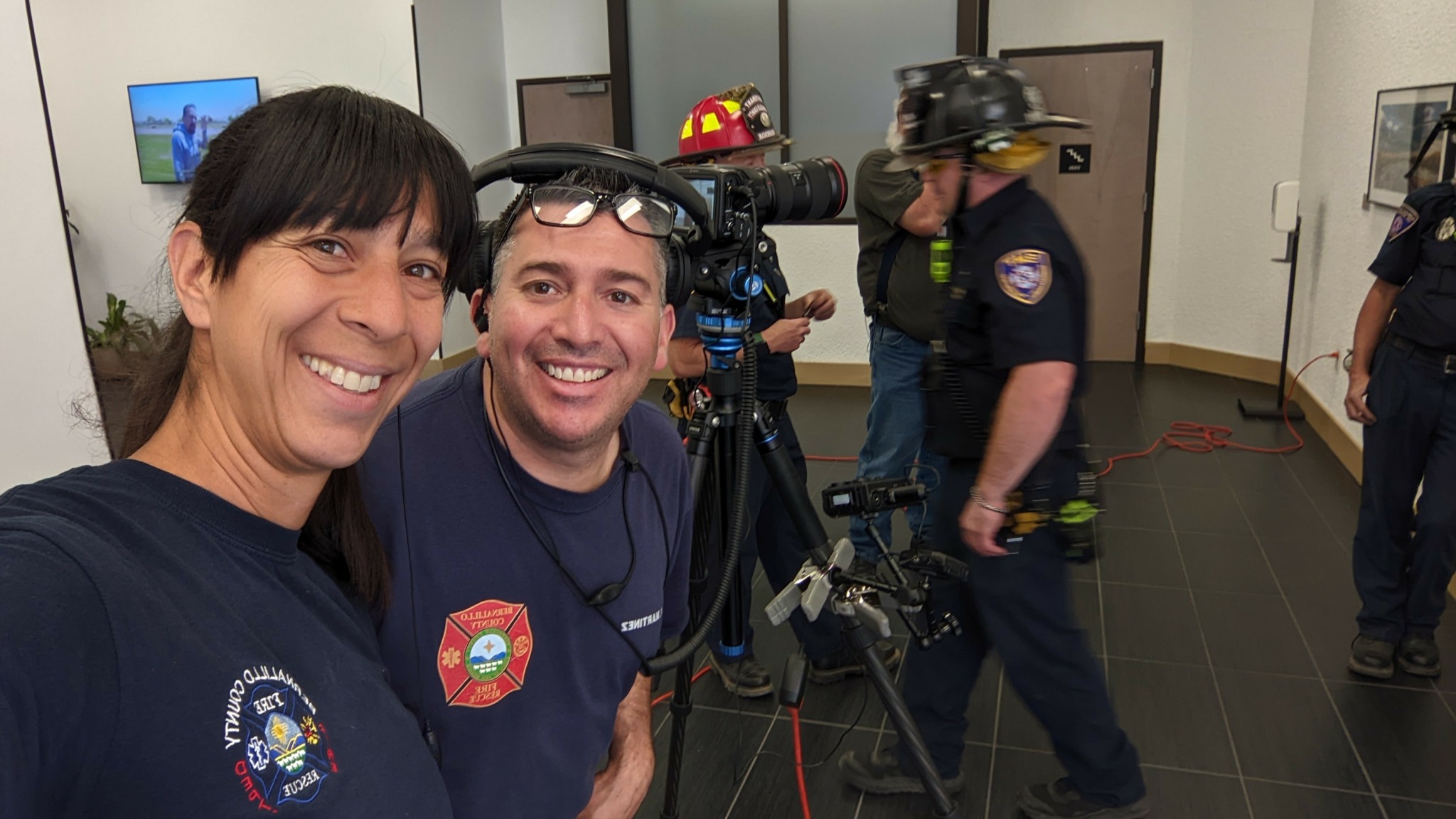
As always, we appreciate you sharing your insights and we’ve got a few more questions for you, but before we get to all of that can you take a minute to introduce yourself and give our readers some of your back background and context?
Hey’llo, everyone! Janessa here!
Well, for those who haven’t come across my story before, there’s one thing my journey has taught me, it’s how to forge my own path and truly make a difference. My entire career has been driven by a simple, often audacious, philosophy: ‘Why not?’
That very question sparked my start in media, where I taught myself how to produce a web series with a skill set I definitely didn’t have, for an audience I had yet to earn. From that unexpected leap, I embraced entirely new challenges: from the rigors of directing a television show to the profound purpose of serving as a firefighter. Life then took another turn, leading me to find a new kind of peace of mind and fulfillment in the world of full-time drone piloting. It’s a diverse background, to say the least, and one I now leverage across several ventures.
Currently, you’ll find me as a Drone Operations and Training Specialist at TruNorthe, focusing on flying complex missions and training new pilots to excel in this rapidly evolving field. But my drive to contribute goes further. I also run my own production business, dedicated to providing high-quality, low-cost video productions for 501(c)(3) organizations. This work allows me to help non-profits tell their crucial stories and further their causes effectively, without straining their already tight budgets. And since I love seeing innovation where it truly matters, I’ve launched a drone school tailored to help first-responding agencies develop robust and safe drone programs for their critical operations.
What truly sets me apart, I believe, isn’t just a list of skills, but that unique blend of experience, from the fast pace of television production to the high-stakes environment of emergency services, and now cutting-edge drone technology. This diverse path has equipped me with a rare perspective for problem-solving. I don’t just see a single solution; I bring a fuller understanding of operational needs, visual storytelling, and strategic implementation, always asking, ‘How can we do this differently, and better?’ Whether it’s helping a non-profit amplify their message, training pilots to a higher standard, or empowering emergency services with new tech, I’m relentlessly driven to deliver effective, real-world results.
What I’m most proud of is consistently creating my own opportunities and building strong, capable teams around me, often when the path wasn’t clear at all. I want potential clients and partners to know that I approach every project with dedication, adaptability, and a commitment to making a tangible difference. My brand is built on the belief that with the right vision and that persistent ‘why not?’ attitude, truly impactful work can be achieved, often in the most unexpected ways.
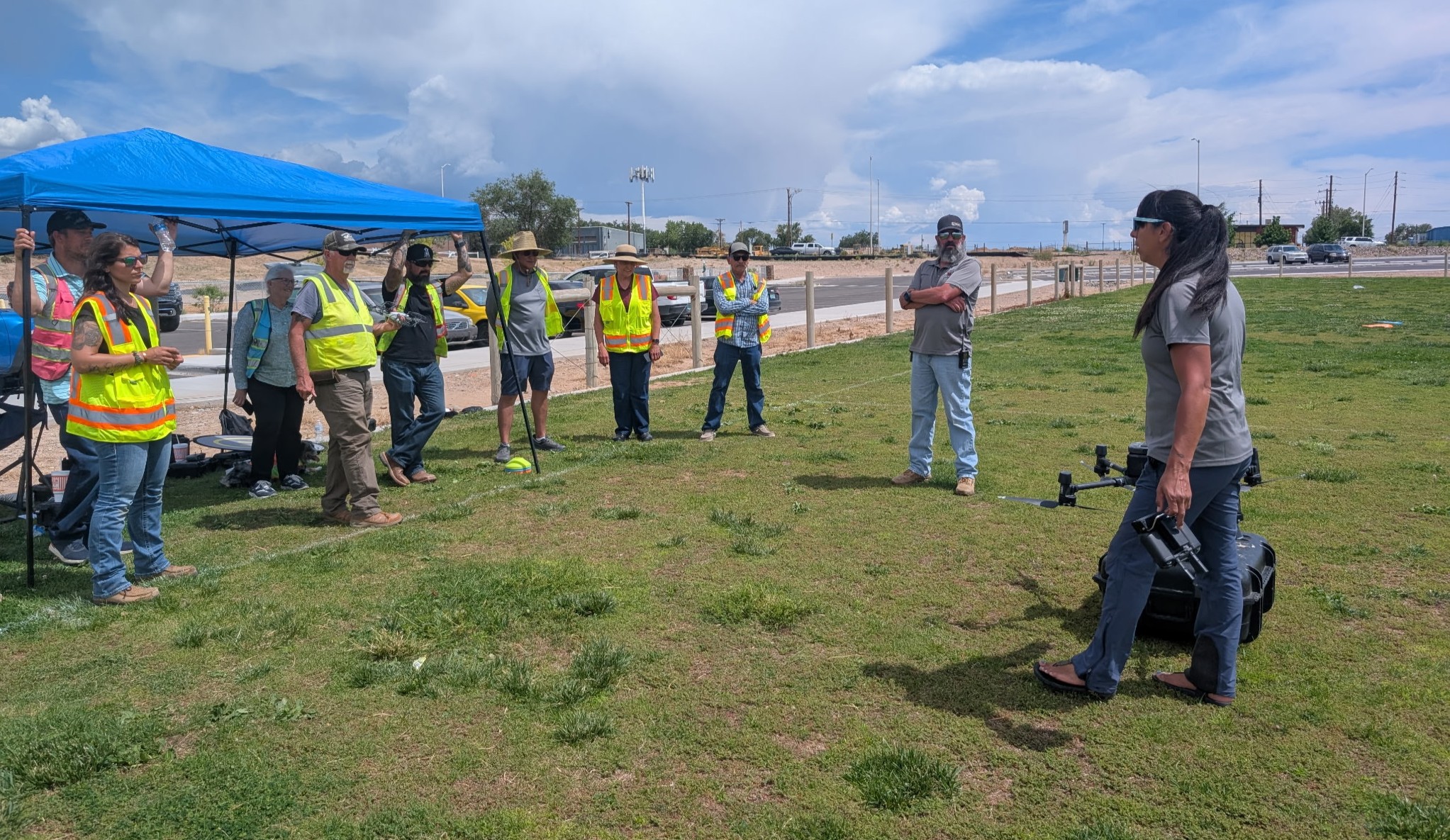
What do you think helped you build your reputation within your market?
My approach has always revolved around uncompromising quality paired with clear communication. Whether in production or drone work, I tackle projects by first understanding the client’s budget and timeline, and then openly discussing how those two factors influence the scope. Quality is never sacrificed, but I ensure clients know that a smaller budget might mean extended timelines, while quick turnarounds will necessitate a higher investment. This transparency, I’ve found, builds immense trust.
What truly sets me apart is my ability to leverage a multidisciplinary background to solve problems in uniquely effective ways. For instance, with a client like Maestas Development Group, when they needed to validate line of sight for proposed gas station signage, I didn’t just offer standard panoramics. Instead, I proposed using one enterprise drone with a spotlight acting as a sign proxy, while a second drone, equipped with a high-powered zoom lens, captured definitive proof from various highway positions. This innovative blend of aerial expertise and strategic thinking provides next-level service that consistently stands out.
Beyond the technical skills, the core of my reputation comes down to listening intently to my clients. They often have a clear vision, and while I bring my own creative flair, their needs are paramount. I’m firm about what’s possible within limitations of time, budget, and equipment, but I always assure them, “if it is important to you, then it is important to me.” This commitment builds a deep level of trust and ensures the final product truly aligns with their vision.
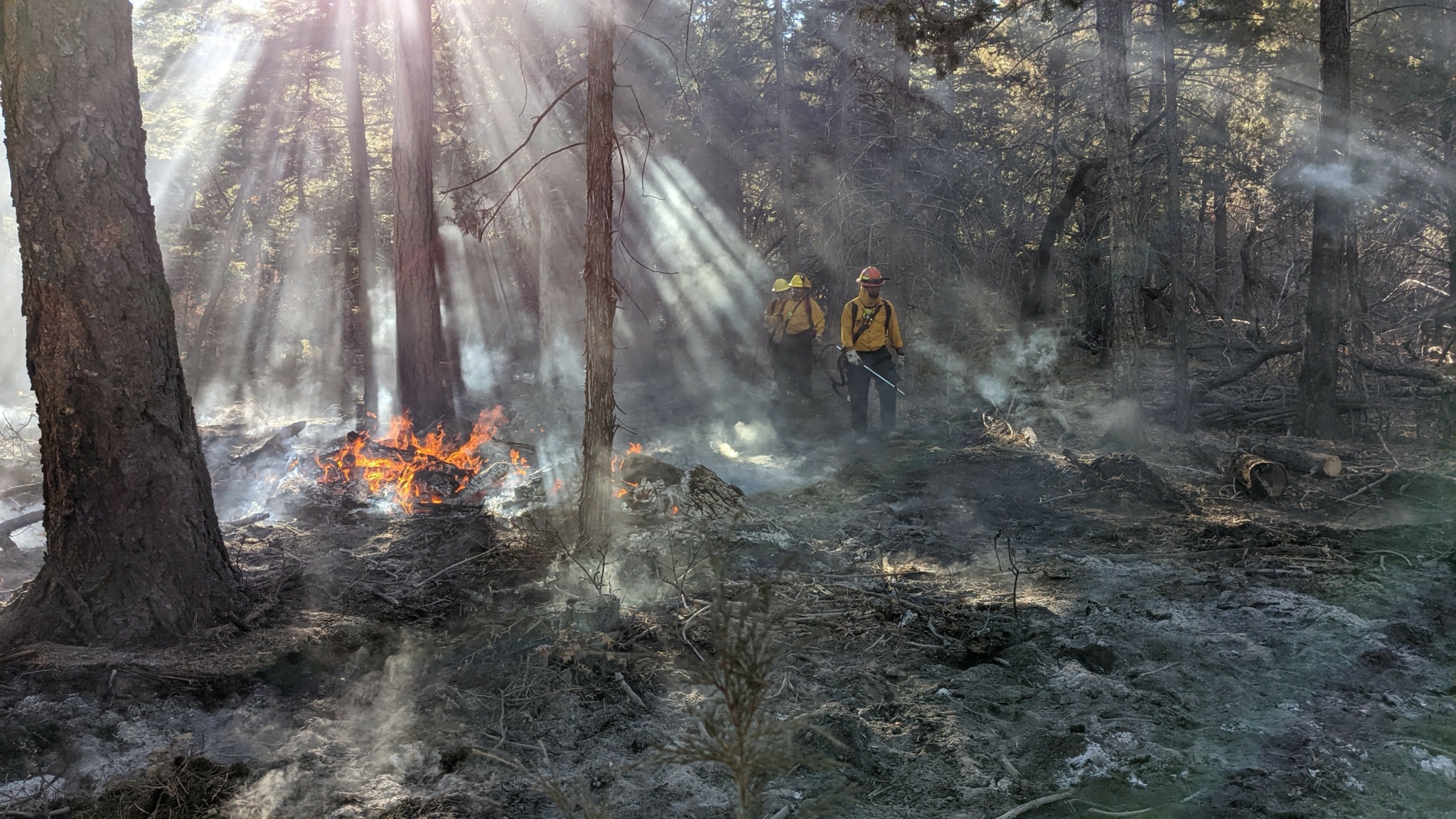
Can you tell us about what’s worked well for you in terms of growing your clientele?
When it comes to building clientele, I’ve found it’s less about chasing every lead and more about cultivating genuine connections and delivering undeniable value. My most effective strategy has always started with a simple truth, something Adam Savage from MythBusters famously echoed: ‘How would a client hire you if they don’t even know what you do?’
That means putting myself out there and starting a dialogue, even when it feels a bit unconventional. But the real magic happens in that conversation. I make it a point to truly listen, letting a potential client articulate their project in full. It’s during this deeper understanding of their scope that I can often offer a service that not only meets their needs but can actually elevate, streamline, or even reduce the cost of their entire project. That proactive, problem-solving approach at the outset builds immense trust and lays the groundwork for future engagement.
Honestly, a significant luxury I’ve found in my current phase is not being in constant need of work. This unique position allows me to embrace projects that genuinely stir my passions, rather than taking on assignments purely out of financial necessity. This methodology inherently means I can tackle projects with minimal compromise to quality or my own creative flare. That dedication to producing a superior product or presentation, driven by genuine enthusiasm, organically leads to strong word-of-mouth and a natural stream of referrals.
Beyond the polished deliverables, my reputation—and subsequent growth—has always hinged on honesty and transparency. Clients often arrive with visions of grandeur, and a key part of my role is to professionally, but firmly, temper those expectations. This candid dialogue helps both parties assess if we’re truly the right fit for each other from the start. I’ve even turned down significant projects because their direction wasn’t ethical or would have led to a cascade of compromises. My unwavering commitment to integrity and quality ensures that any client I work with knows that ‘if it is important to you, then it is important to me.’ This foundational trust is truly what brings people back and encourages them to spread the word.
Ultimately, my strategy for growth isn’t about aggressive marketing; it’s about consistently delivering exceptional work, tailored solutions, and unwavering integrity, allowing my passion and the results to speak for themselves in the market.
Contact Info:
- Website: https://www.thunderrustmedia.com/janessa
- Instagram: https://www.instagram.com/cutejanessa/
- Facebook: https://www.facebook.com/thecutejanessa
- Linkedin: https://www.linkedin.com/in/janessa-ruiz/
- Twitter: https://x.com/cutejanessa
- Youtube: https://www.youtube.com/@cutejanessa
- Other: https://www.skyofenchantment.com
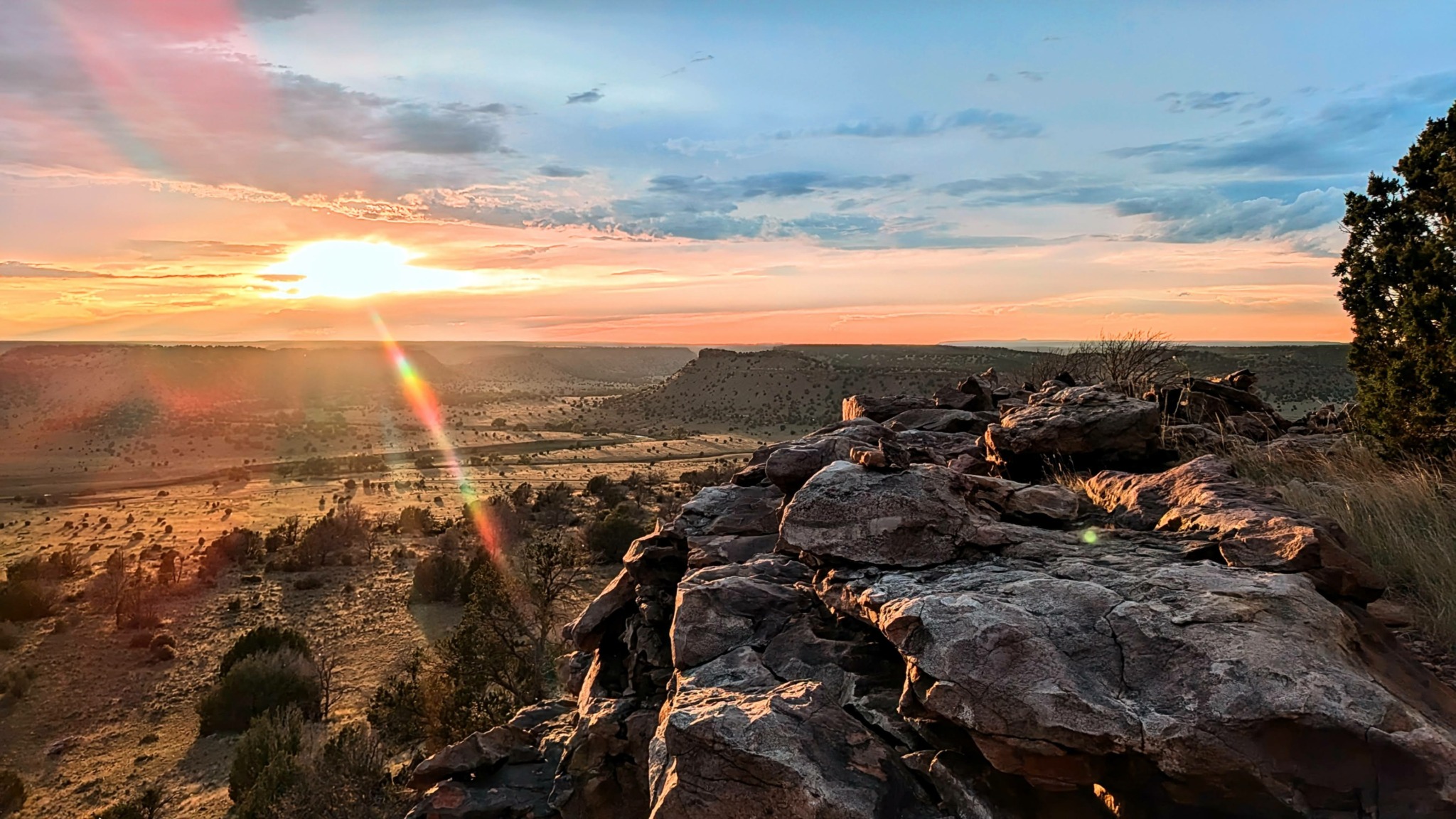
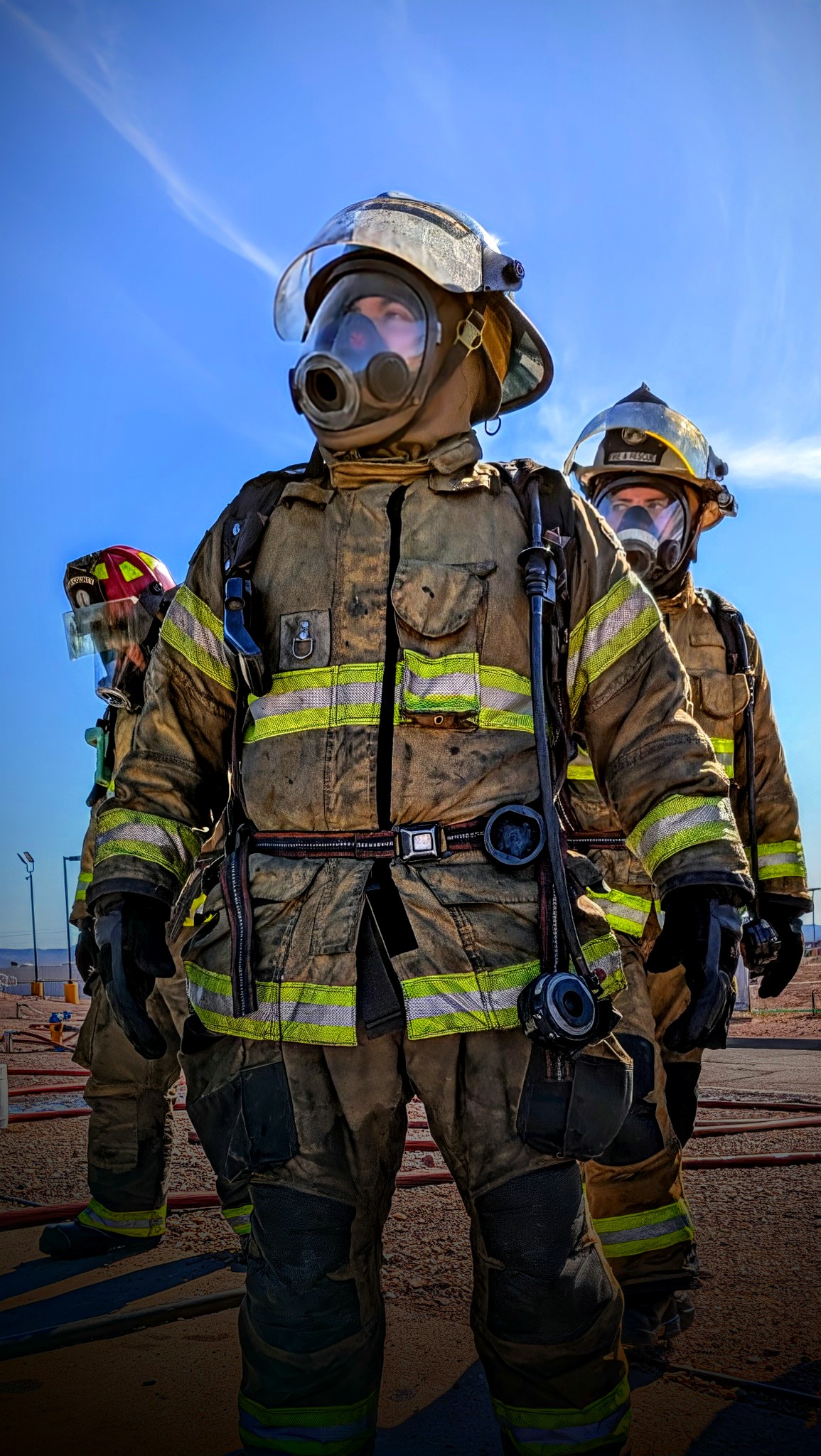
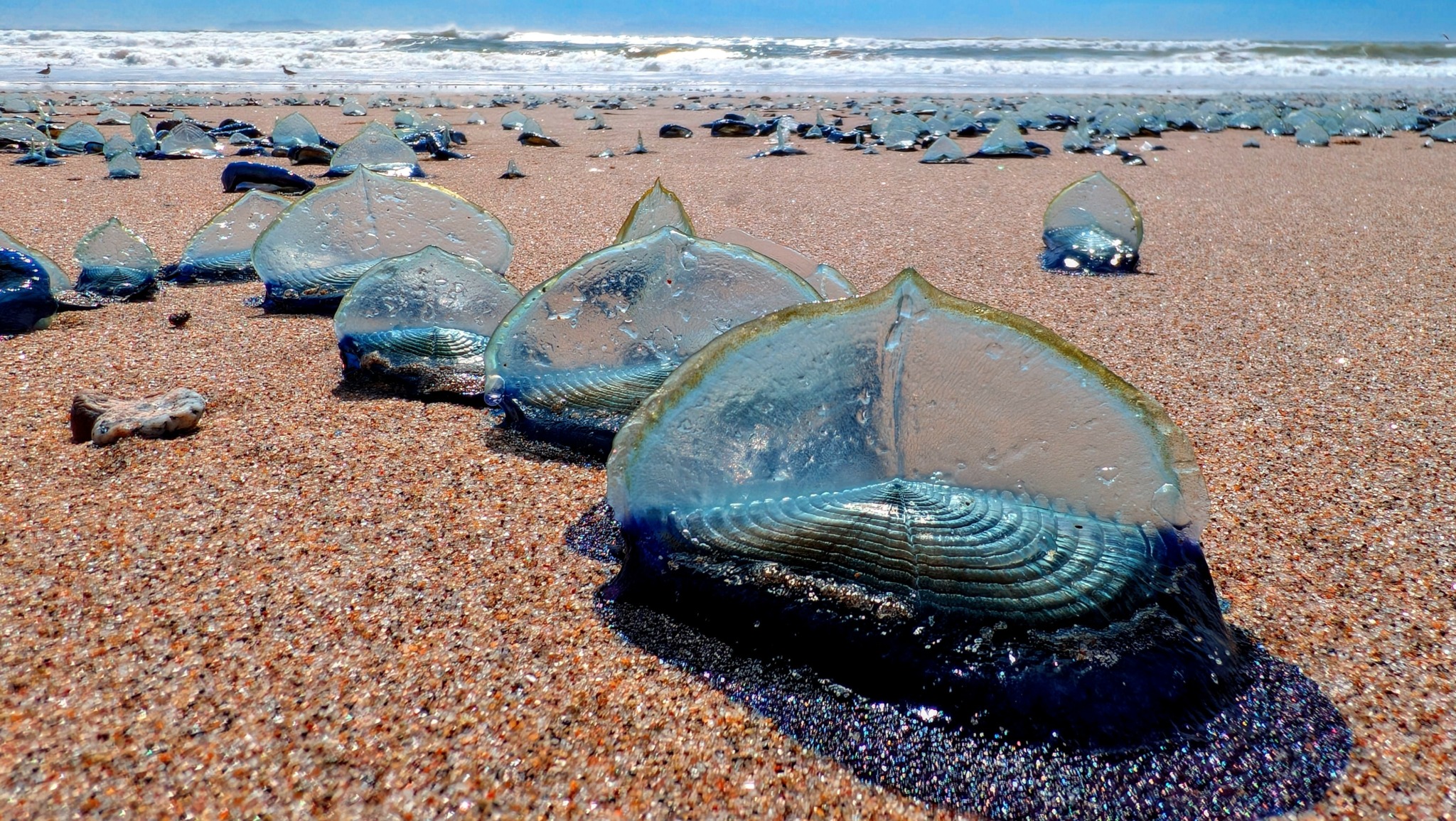
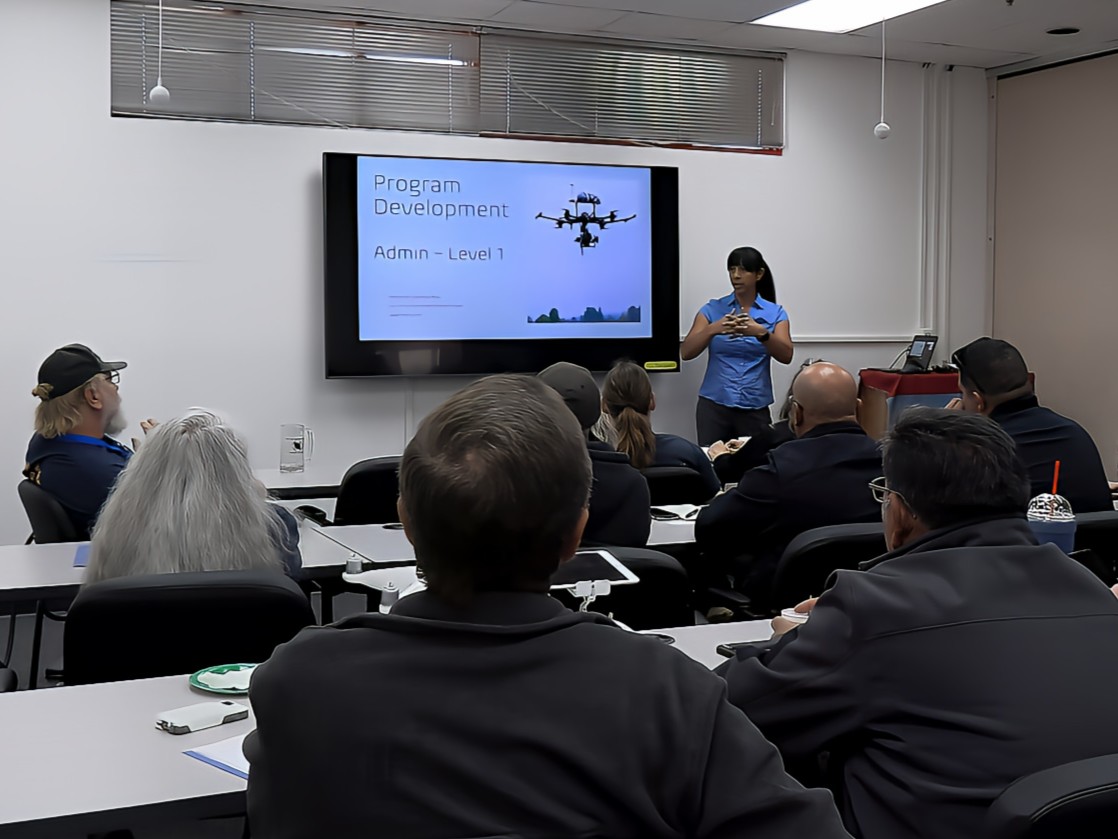
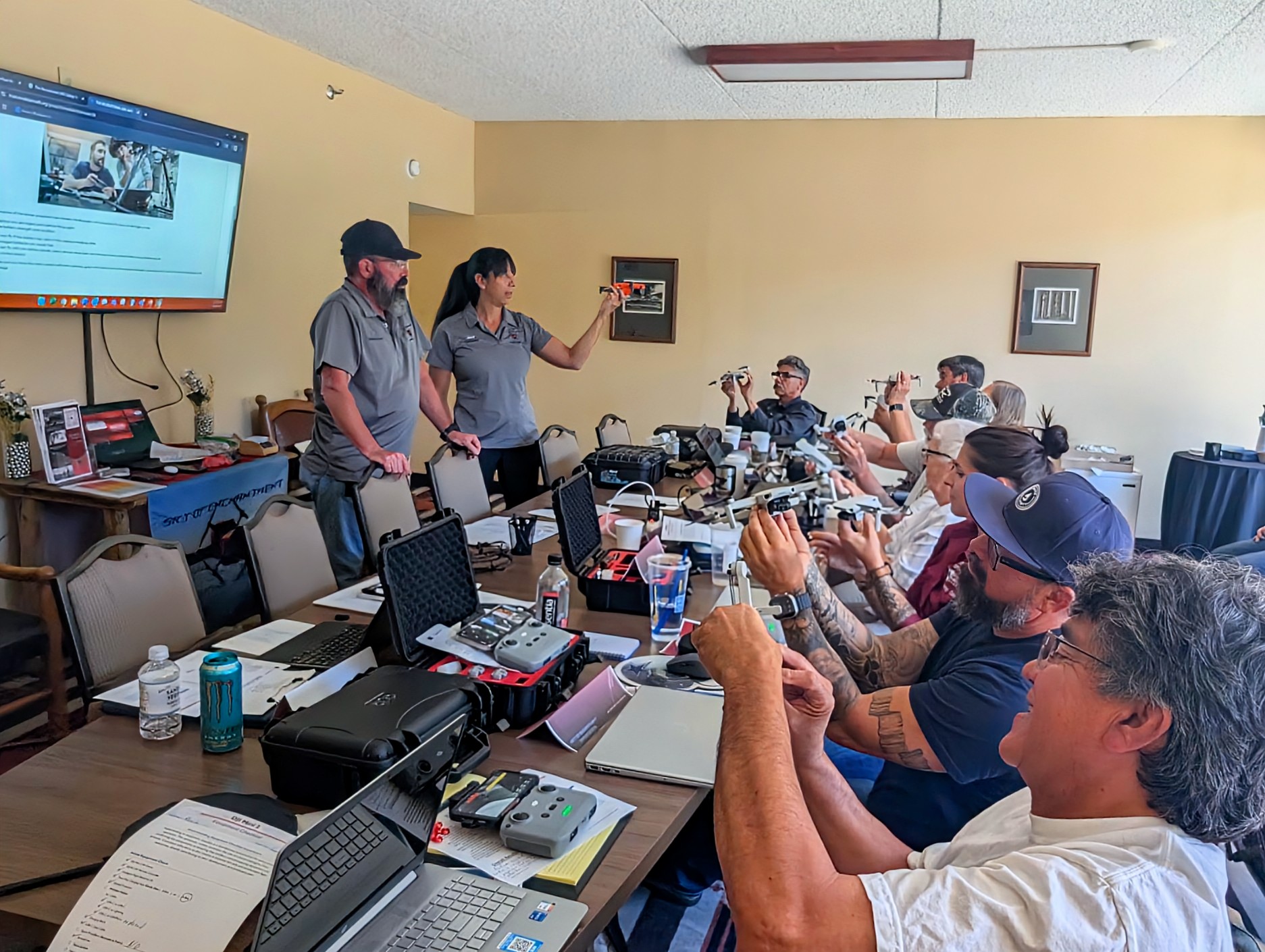
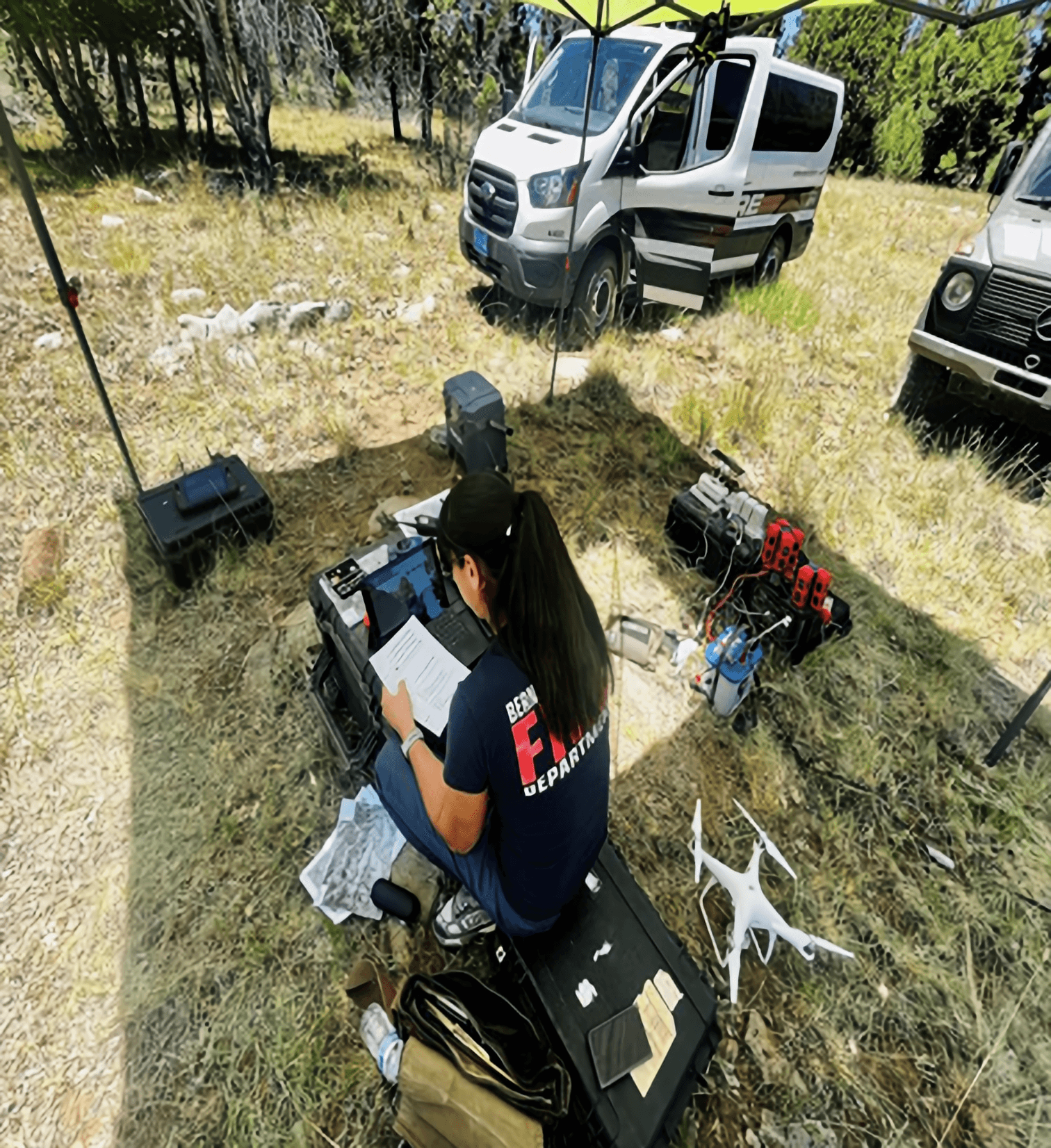
Image Credits
All Image Credits belong to: ThunderRust Media & Productions LLC


